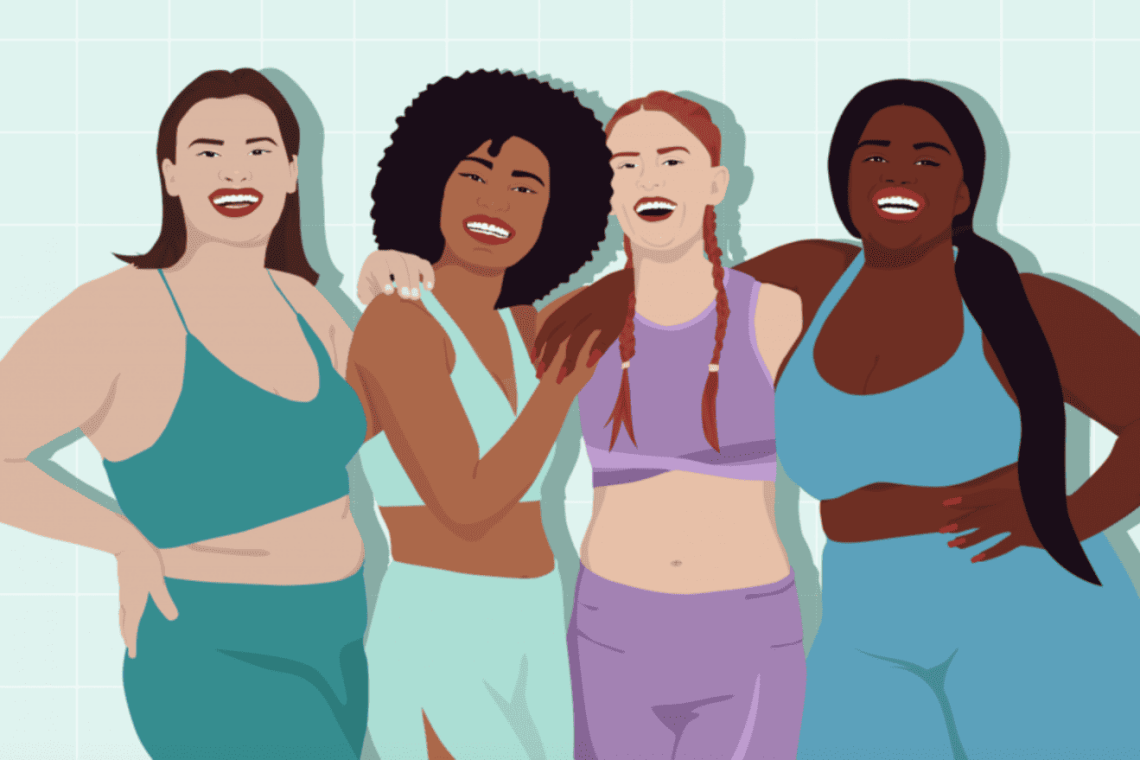There are many barriers to continuing with any Behaviour Change Intervention. Thankfully, research has shed some light on what these reasons may be. When we understand things better, we can find solutions.
First thing to understand is the quality of the research that I am referring to is good. Systematic reviews involve a specific search strategy aiming to identify, appraise, and synthesise all relevant studies on a particular topic. They’re considered ‘gold standard’ evidence. However, it does depend on the studies they include.
What does the research tell us?
Nevertheless, based on 2 systematic reviews barriers to sticking to behaviour change interventions in adults who live life in bigger bodys’ include the following:
- lack of motivation
- lack of time
- social/ environmental/ societal pressures
- physical or health limitations
- negative thoughts
- low mood
- socioeconomic barriers
- lack of knowledge or awareness
- dislike of exercise.
Here are some of my thoughts on the above.
Motivation Interviewing
All Dietitians working within the clinic are trained in Motivational Interviewing. It’s a counseling style for assisting ambivalent clients instead of putting pressure on the client. It supports autonomy and invites reflection. The client remains in charge, and free to make choices that align with their own unique set of values, and are suited to them as an individual.
Time Management
With regards to time, it’s the job of both the client and Dietitian to figure out solutions. Time needs to be created, and for that to occur, sometimes tips of the trade from the Dietitian can make all the difference. Although we are all different, our struggles are similar.
Physical or Health Limitations
A Registered Dietitian is the ONLY specialist in nutrition that can work in a hospital with patients because they are the only nutrition specialists to be trained to treat, manage and support people with conditions and diseases. One diet doesn’t fit all, and this becomes more important the more sick a body becomes. A healthy diet for someone who is well, and who does not have any conditions and diseases, is different to a healthy diet for someone who does. Modifications and tailoring is a must.
This is why CORU (in Ireland, HCPC in the UK) was set up. They ensure every health care professional met the criterion to use their title, and that they keep up-to-date with study.
Socioeconomic Barriers
Research suggests that 80% of early heart disease is preventable with lifestyle modifications while 40% of cancer cases could be prevented with lifestyle changes. I want to be 100% clear on this, you still have to be unlucky to develop any disease and it is never the person’s fault.
“Genes load the gun, and lifestyle pulls the trigger.” – Caldwell Esselstyn
We need to modify the moifiable, as much as we can (in other words, as much as our life allows). This will help prevent the cost of disease in the future and is undeniably a sound investment of money.
It’s also important to note that the consultations and education sessions with a Registered Dietitian allow people to make a calim with Revenue (Health expenses are claimed through your Income Tax Return) and, if they have it, a claim against their health insurance.
Lack of Knowledge or Awareness
I started my blog and my recipes page, as well as my social media accounts, to offer sound nutrition advice to everyone for free. I know many people get great benenfit from it, and that keeps me working hard in these areas every week. For those that wanted to learn more, as there’s only so much you can learn from reading short posts, I wanted to offer nutrition courses. Keep an eye on this page as this area of my work will continue to grow, with more and more options becoming available.
Dislike of Exercise
I think an important point here and something that should be screamed from the rooftops is that exercise gets harder the less you do. For instance, running becomes enjoyable as soon as you’re fit enough to enjoy it! That’s not to say you won’t get a kick out of putting effort it, but hard work is hard work!
Be Realistic
It is important that there is honesty in the care you receive ( I am a straight shooter!) and from the goals you set yourself (your Dietitian will guide you). We know from research that there are demogrpahic variables that predict a person’s challenge to sticking to behaviour change (remember, nutrition may be a science but eating is a behaviour).
- being female (there are so many reasons behind this one!)
- younger age
- unemployment
- being overweight from childhood
- parental obesity
- higher weight at the start
You won’t be surprised by some of the following, but here is a list of the emotional and behavioural variables have been identified as predictors of sticking to behaviour change.
- dissatisfaction with amount of early weight loss and/or low initial weight loss (there is NOTHING speedy about losing weight in a healthy, sustainable way)
- weight bias (negative attitudes and beliefs about individuals due to their weight status – please note that this is within all of us)
- prioritising family needs over self needs (I have to say, I stopped when I fisrt read this and reflected on my own life)
- high stress, anger or depression
- low health related quality of life
- dissatisfaction with their body
- low self-efficacy (self-efficacy reflects confidence in the ability to exert control over one’s own motivation, behavior, and social environment) and/or readiness to change (a Dietitian needs to adjust a plan to someone’s readiness to change so that they maximise results with minimal change).
- currently smoking
How to GROW
G = GOAL (what do you want to achieve – be specific, define it)
R = REALITY (how’s your life going to facilitate or get in your way)
O = OPTIONS (what options do you have?)
W = WILL (What are the first steps and hurdles)
Please take time to reflect and when formulating a plan, please be compassionate with yourself.











